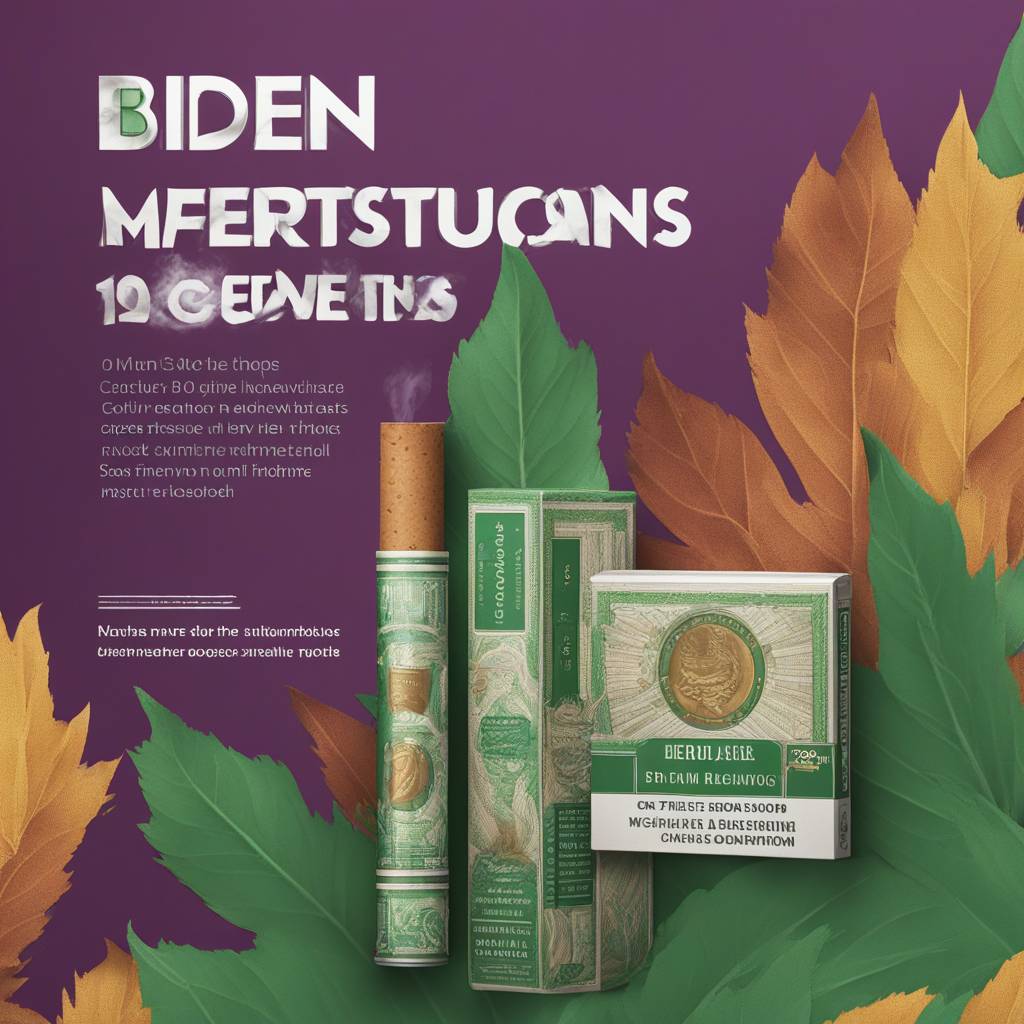The Biden administration is preparing to finalize regulations targeting menthol cigarettes despite opposition from small businesses, civil rights, law enforcement, and consumer groups. The FDA first proposed the ban two years ago, sparking a contentious debate between health advocates and civil liberties and business groups. The FDA has missed several target dates for finalizing the ban, the latest being earlier this week. The agency remains committed to issuing the tobacco product standards, with the rules currently under review by the Office of Management and Budget.
Delays in finalizing the regulations have caused concern among proponents of the ban, who argue that such action is necessary to achieve the goals of President Biden’s “Cancer Moonshot” initiative. The administration was initially expected to finalize the ban in August 2023, but delays have stretched for more than seven months. Critics of the ban are hopeful that their advocacy has resonated with White House officials, potentially prompting a reconsideration of the ban. Opponents warn that a ban could lead to a black market, harm small business owners, and disproportionately affect minorities who are the largest consumers of menthol cigarettes.
The White House and FDA have held meetings with various stakeholders, including proponents like the American Cancer Society and opponents like convenience stores, police organizations, and minority groups. Critics argue that bans on menthol cigarettes have not been effective in the past and could have significant economic consequences. Data from states that have banned menthol cigarettes suggest a reduction in sales for convenience stores, potentially leading to billions of dollars in lost revenue for the industry. Opponents stress that banning menthol while allowing non-menthol cigarettes could disproportionately impact minority communities.
Groups representing minorities have raised concerns about the potential negative interactions between police and minorities that could result from a menthol cigarette ban. The National Organization of Black Law Enforcement and the National Action Network, founded by civil rights leader Rev. Al Sharpton, argue that the ban could put minority communities under scrutiny. These organizations have met with government officials to discuss the proposal and express their opposition. The FDA’s proposed rules aim to reduce disease and death from tobacco use by preventing youth experimentation and addiction while encouraging smokers to quit.
Tobacco smoking remains the leading cause of preventable death in the United States, according to the FDA. The agency cites its congressional authority to adopt tobacco product standards as the basis for proposing the ban on menthol cigarettes. The ongoing debate over the ban highlights the complex issues surrounding public health, civil liberties, business interests, and racial equity. The outcome of the FDA’s final decision on the ban will have far-reaching implications for public health efforts and the economy.













